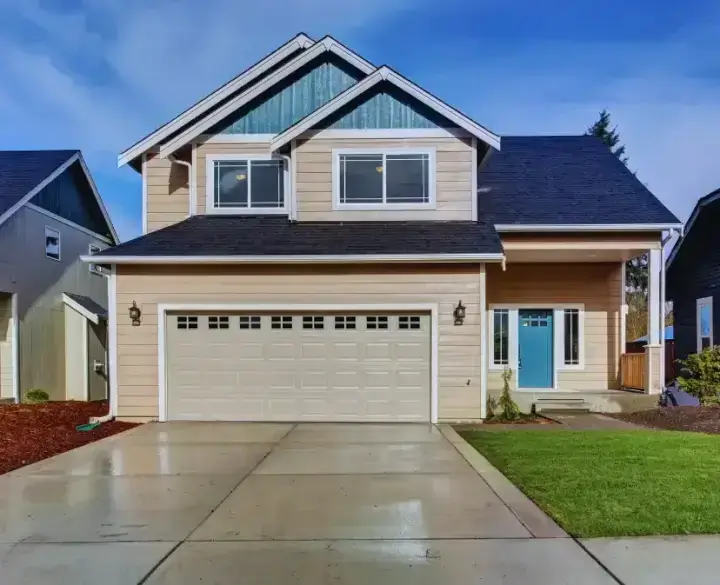Smart Home Technology for Investors

In today’s fast-moving property market, smart home technology is no longer a luxury—it’s an opportunity. For real estate investors, adopting smart systems in rental properties or resale investments can significantly increase appeal, security, and ROI.
This blog explores why investors should take smart technology seriously and how it can add long-term value to any real estate portfolio.
What Is Smart Home Technology?
Smart home technology refers to systems and devices that automate and control home functions through internet-connected devices. These include:
Smart thermostats
Smart lighting
Security cameras and doorbells
Smart locks
Voice-controlled assistants (like Alexa or Google Home)
Leak detectors
Energy monitoring systems
These devices are often controlled remotely via smartphone apps, offering convenience and efficiency to both tenants and owners.
Why Investors Should Care
Real estate investment is about maximizing returns, reducing risks, and staying competitive. Smart home features help on all three fronts:
1. Higher Rental Income
Properties equipped with smart systems often command higher rent. Tenants—especially millennials and Gen Z—are increasingly tech-savvy and willing to pay a premium for modern amenities.
2. Reduced Operating Costs
Smart thermostats and lighting systems optimize energy usage. This reduces utility bills, which is a win for both landlords (in multi-tenant buildings) and environmentally-conscious renters.
3. Increased Property Value
Homes with modern upgrades sell faster and often for more. A smart-enabled property is more attractive during resale, especially in competitive urban or suburban markets.
4. Enhanced Security
Smart locks, surveillance systems, and video doorbells offer real-time monitoring and control. For property managers or landlords, this means fewer security issues and happier tenants.
Key Smart Devices Every Investor Should Consider
Here are some of the most impactful devices to consider installing in your investment property:
Smart Thermostat
Adjusts temperature based on occupancy or usage patterns.
Helps reduce energy bills by up to 20%.
Popular models: Nest, Ecobee.
Smart Door Locks
Enables remote access for maintenance crews or new tenants.
Eliminates the need for physical keys.
Popular brands: August Smart Lock, Schlage Encode.
Smart Security Cameras
Monitor entrances and shared areas 24/7.
Some include motion detection and mobile alerts.
Great for tenant peace of mind and property protection.
Leak and Smoke Detectors
Early detection prevents costly damage.
Ideal for multi-unit properties or older buildings.
Best Investment Strategies Using Smart Tech
Renovation and Resale (Flipping)
Add smart features during home renovations to boost resale appeal. Buyers love move-in-ready homes with built-in technology.
Short-Term Rentals (Airbnb)
Vacation rental guests expect convenience. Smart locks allow contactless check-in, and smart lights or music systems enhance the experience.
Buy-and-Hold Rental Properties
Smart tech helps in long-term maintenance and management. You can monitor utilities, security, and even detect leaks remotely—saving time and costs.
What Tenants Really Want
When marketing a smart home, focus on the benefits tenants care about:
Convenience – Control everything from a phone.
Safety – Secure entry, cameras, and alerts.
Efficiency – Lower power bills and smart climate control.
Modernity – Many tenants simply like to live in tech-forward homes.
Smart features can be a unique selling point that sets your property apart in a crowded rental market.
Cost vs. Benefit: Is It Worth It?
The upfront cost of smart tech installation can range from $500 to $3,000 depending on the features you choose. However, the return on investment (ROI) is clear:
Faster occupancy = less vacancy time.
Higher rents = improved cash flow.
Better resale = increased property value.
Reduced maintenance calls = saved time.
Smart upgrades also qualify for green home tax incentives in some areas, providing even more savings.
Potential Drawbacks and How to Avoid Them
Like any investment, there are some challenges to consider:
Privacy Concerns
Some tenants may feel uncomfortable with devices like cameras. Ensure transparency and offer control over personal spaces.
Learning Curve
Not all tenants are tech-savvy. Offer a simple manual or support during onboarding.
Maintenance
Smart devices need updates and occasional troubleshooting. Choose devices with solid warranties and good customer support.
Future Trends: What’s Next?
Smart home technology is only growing. Here’s what’s coming:
AI-integrated systems that learn tenant habits
Smart appliances like refrigerators and ovens
Solar energy integration with smart meters
Voice and gesture-controlled environments
Blockchain-based property access management
Early adopters of these technologies will enjoy a first-mover advantage, especially in tech-forward cities.
Final Thoughts
For real estate investors looking to future-proof their properties, smart home technology is not just a trend—it’s a strategic advantage. It boosts rental appeal, simplifies management, and increases property value over time.
Investing in smart features today could mean higher profits and lower headaches tomorrow.
If you're looking to grow your portfolio and want properties that stand out in a competitive market, start with smart tech. It’s a smart move—literally.
Important Links
What Is Option to Purchase in Singapore
Resale Levy for Second-Time HDB Buyer
Minimum Occupation Period HDB Explained: What Every Homebuyer in Singapore Should Know
Singapore Freehold vs Leasehold Property Value
- Art
- Causes
- Crafts
- Dance
- Drinks
- Film
- Fitness
- Food
- Games
- Gardening
- Health
- Home
- Literature
- Music
- Networking
- Other
- Party
- Religion
- Shopping
- Sports
- Theater
- Wellness


